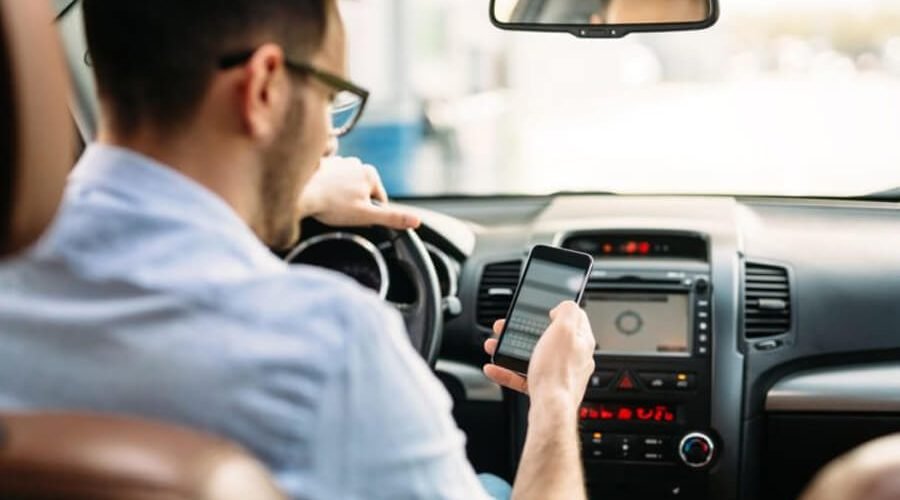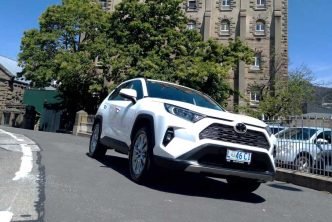Good driving requires some level of intelligence. A driver must have kinesthetic intelligence that will allow them to maneuver the vehicle and logical intelligence, enabling them to make well-calculated choices as they face other drivers or situations on the road.
Many cases involving distracted driving result from drivers using their phones while on the road, but it doesn’t stop at that. There are a lot of instances of distraction, both physical and mental. Hale Law talks about the differences between physical and mental distractions. Read on to distinguish the two, as you also get ideas on how to avoid distracted driving.
Table of Contents
What are Physical Distractions while Driving?
Physical distractions are the activities that make drivers take one or both of their hands off the steering wheels or move their bodies when they are driving. By nature, physical distractions reduce the driver’s control over the vehicle. They include:
- Texting and calling
- Unwrapping and Eating food
- Sipping and stirring beverages
- Talking and gesturing with passengers
What are Mental Distractions
A driver is mentally distracted when their attention is diverted to other tasks. Emotions are known to alter our ability to focus while driving. Causes of mental distraction include:
- Daydreaming
- Having a heated or passionate discussion or argument with a passenger
- Making a phone call on a hands-free cell phone
- Emotional reaction to the news on the radio
- Distracting emotions like anxiety, fear, frustration, and among others
What are the Impacts of Mental Distraction?
Mentally distracted drivers have slower reaction times. When faced with situations where they need to act fast to avoid collisions, their minds take time to make the appropriate decisions. Studies show that legally drunk drivers may respond more quickly than mentally distracted drivers.
Mental distractions can last longer than the driver would think. In fact, according to a study by the Washington Post, a driver can remain cognitively distracted for up to 27 seconds after using their hands-free devices.
Avoiding Mental Distractions while Driving
The first steps to avoiding these distractions are education and awareness because sometimes drivers make such mistakes for a lack of knowledge. Here are the recommended actionable strategies for you as a diver to avoid mental distractions.
- Silence the cell phone and put it away
- Put in something you will be okay listening to throughout the drive.
- Get calming music to listen to or talk about matters you can’t strongly react to
- Remind passengers that you are driving so they don’t distract you.
The Myth of Driving Safely while Multitasking
It is a dangerous pursuit to multitask when driving, as being behind the wheel demands that you stay focused. Most people believe they can efficiently multitask, especially with natural activities. Having divided attention when driving implies that if you encounter sudden danger, you may have less time to avoid the risk before the impact.
What are the Dangers of Distracted Driving?
While drivers should avoid distracted driving, statistics still report an increase in this destructive behavior. The dangers include:
Being involved in a Collision – No matter how much of a seasoned driver you are, when you are distracted, a collision is inevitable.
Criminal Penalties – While you may not cause fatalities, you will get severe fines and sanctions if you get caught distracted by a mobile phone behind the wheel.
Higher Insurance Premiums – Insurers always have to pay more claims when there are high accident rates. To caution themselves, the insurance companies transfer the increased costs to the customers as high insurance premiums.
Lost Driving Privileges – As a driver, you risk having your license revoked or suspended if you accumulate many penalty points.
Damaged Reputation – Imagine your company being on the news because your driver got involved in a collision because of distracted driving. Such involvement would rip your company off the reputation you’ve built for years.
What is being done to stop Distracted Driving?
Research about the dangers of distracted driving is conducted daily to increase awareness among all drivers. To add onto that, here are the initiatives taken by individuals to combat distracted driving:
- Forming Organizations
Various distracted driving groups band together to sensitize drivers to stop distracted driving. Such organizations have activities that are as simple as requesting people to pledge against distracted driving.
- Enacting Laws
There has been nationwide awareness of the shocking data produced on texting while driving. It has made the federal, state, municipalities and local governments propose and enact laws prohibiting driver cell phone usage.
- Phone/text-blocker Apps
There are phone/text-blocker applications that make it easier for drivers to stop phone use on the road. The applications interface the mobile phones to the GPS of the vehicle so that they can see if the car is moving. The application disables the call and text features if it is in motion.





